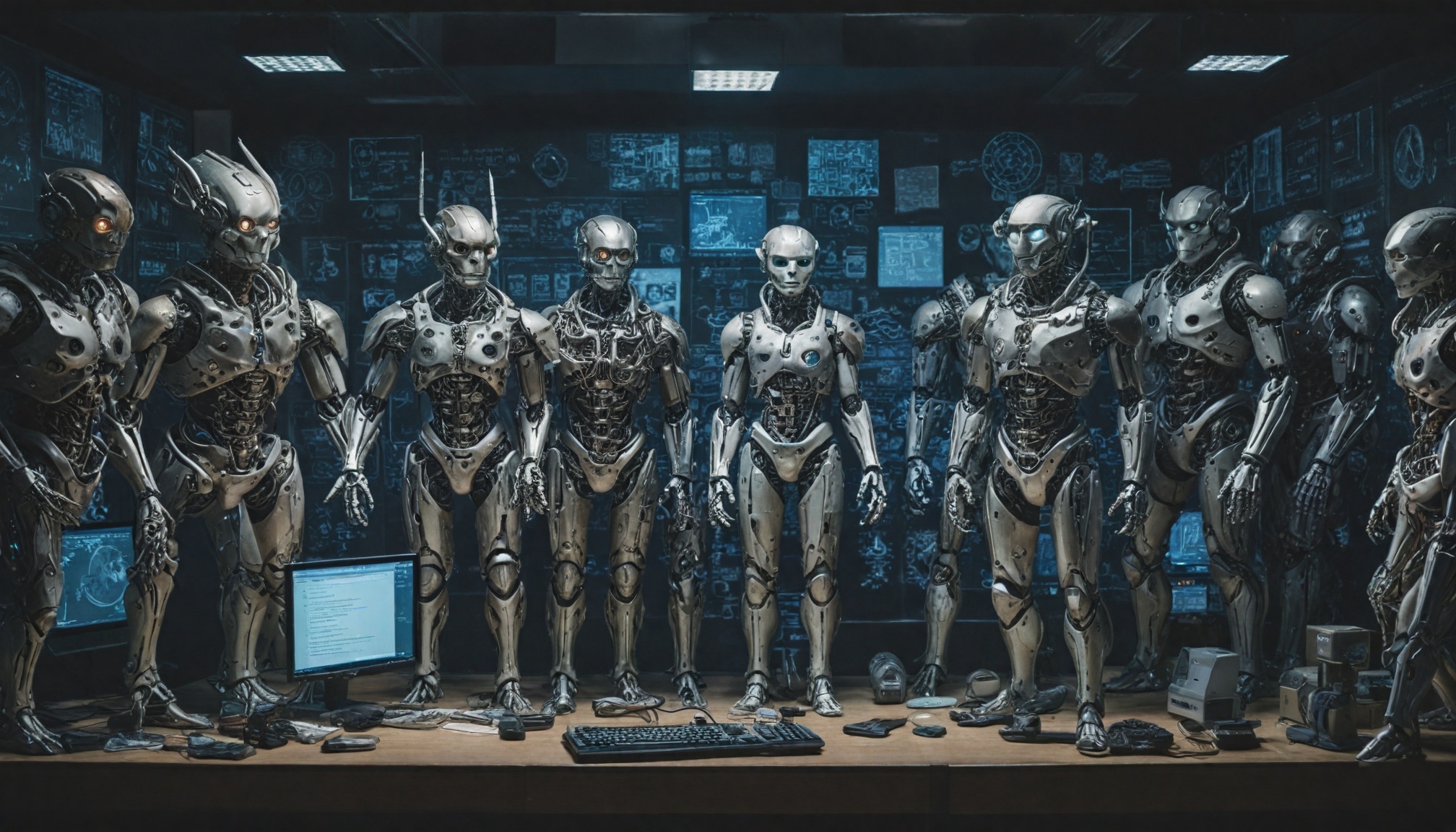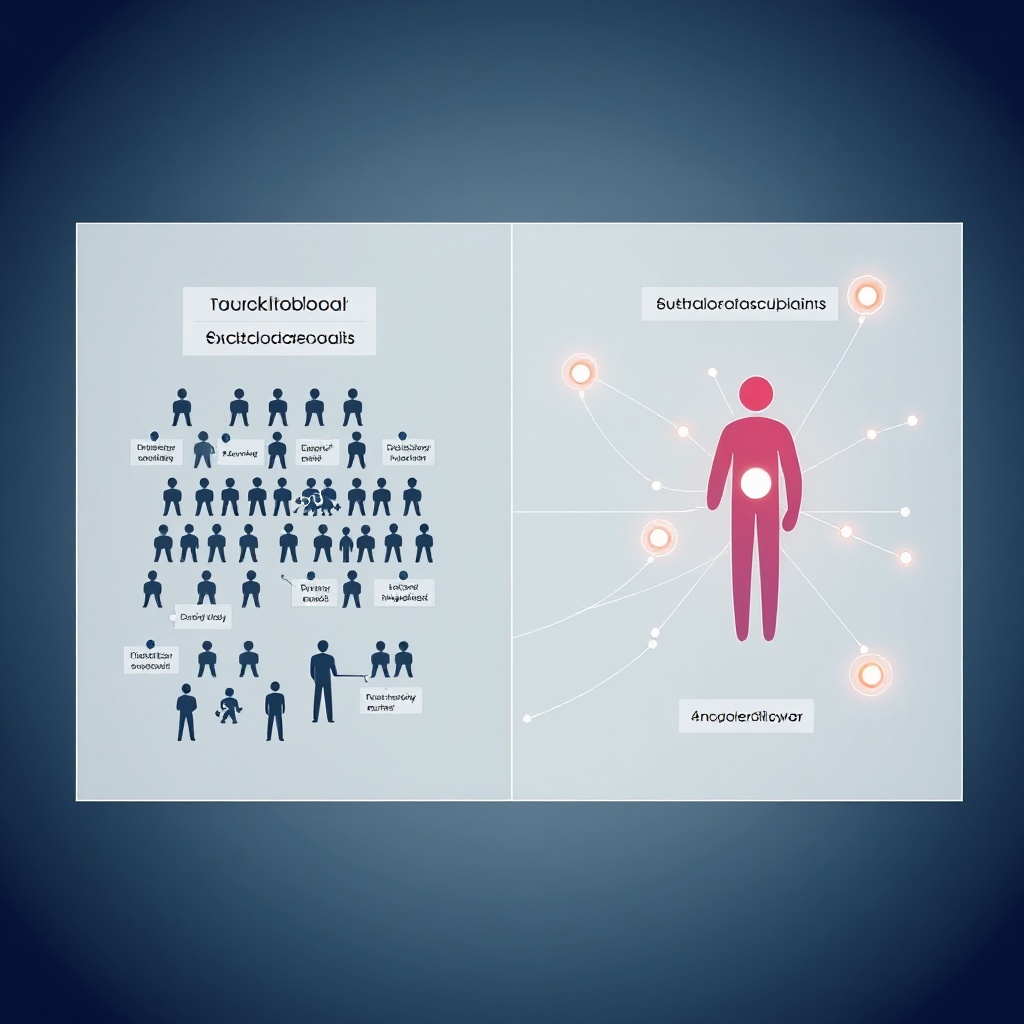
AI copilots transform development by boosting speed 25-40%, improving code quality, and reshaping team structures, creating new paradigms for human-machine collaboration.

Drivetech Partners
AI copilots are dramatically reshaping software development by not only accelerating code completion but fundamentally transforming how development teams operate and collaborate. These advanced AI assistants are creating a profound shift in the industry by redefining productivity standards, enhancing code quality, and establishing new paradigms for how humans and machines partner in creative technical work.
Key Takeaways
Development speed increases by 25-40% when teams incorporate AI copilots into their workflows
Developer satisfaction rises significantly with 73% reporting improved flow state when using AI assistance
Code quality metrics show measurable improvements with 56% greater likelihood of passing unit tests
Traditional team structures are evolving toward streamlined organizations with fewer specialized roles
Future developers will need different skill sets focused on architectural thinking and effective AI communication

The Productivity Revolution: Quantifying AI's Impact
The integration of AI copilots into software development workflows has triggered a productivity revolution that's reshaping how code gets written. Development teams using GitHub Copilot complete work 20-40% faster with fewer code revisions, translating to an average time savings of 3.5 hours per project. This acceleration isn't just incremental – it's transformative.
The data supports this shift convincingly. Studies show that developers using GitHub Copilot write 13.6% more lines of error-free code compared to non-users. Even more impressive, 90% of code snippets generated by Copilot are functionally correct right out of the gate, reducing the need for iterative debugging cycles.

This acceleration doesn't come at the expense of quality. In fact, the opposite is true. When developers partner with AI tools, they can focus their mental energy on the more complex and creative aspects of development while the AI handles repetitive tasks and boilerplate code.
Code Quality and Error Reduction: The Technical Benefits
Beyond pure speed, AI copilots deliver substantial quality improvements across development projects. Code written with GitHub Copilot is 56% more likely to pass all unit tests compared to code written without AI assistance. This translates to more reliable software with fewer defects reaching production.
AI-assisted development shows measurable improvements across several key metrics:
13.6% more lines of code written without errors
1-3% improvements in readability, reliability, maintainability, and conciseness
5% higher code approval rates during peer reviews
Significant reduction in common errors through automated static analysis
AI copilots excel at performing static code analysis and automated debugging, identifying issues ranging from memory leaks to syntax errors before they become problems. This capability is particularly valuable in highly regulated industries like healthcare and aerospace, where compliance requirements add layers of complexity to development efforts.
The Human Element: Developer Experience and Satisfaction
The technical benefits of AI copilots are matched by their positive impact on developer well-being. According to studies, 73% of developers report that GitHub Copilot helps them stay in flow state – that highly productive mental zone where creativity and problem-solving flourish.
This improvement in the developer experience isn't just about comfort; it's about sustained productivity. When developers can maintain flow state, they produce better work more consistently. The numbers back this up: 87% of developers say AI tools preserve mental energy during repetitive tasks, and 39% more developers using generative AI reported being in flow state compared to non-users.
Personalization features further enhance this experience as AI tools learn individual coding styles and preferences. Over time, the AI becomes more attuned to each developer's approach, making suggestions that feel increasingly natural and aligned with their thinking.
Evolving Team Structures: New Organizational Paradigms
The rise of AI copilots isn't just changing how individual developers work – it's reshaping entire team structures and roles. The future model of software development shows streamlined teams where individual engineers are assisted by sophisticated AI tools, reducing the need for numerous specialized positions.

Leading tech companies like Microsoft and Google are at the forefront of this transformation, integrating AI deeply into their development workflows. The shift is so profound that US Department of Energy researchers predict that by 2040, machines may write most of their own code.
This evolution means smaller, more efficient teams can achieve what previously required large specialized groups. Tasks that once demanded dedicated personnel – from documentation to testing to optimization – can increasingly be handled by AI-assisted developers working in concert with their digital copilots.

From Responsive Tools to Autonomous Partners
The evolution of AI in software development is moving rapidly from responsive tools toward autonomous collaborators with initiative. Current AI copilots primarily respond to developer prompts, but next-generation tools are emerging with capabilities for proactive issue identification and automated testing.
This shift represents the rise of what some call "agentic engineering" – AI systems that don't just respond but actively participate in the development process. These emerging tools integrate multimodal capabilities, combining visual understanding, verbal language processing, and direct interaction with development environments.
Perhaps most significantly, natural language is becoming central to this new paradigm. English is increasingly described as "the hottest new programming language" as interfaces evolve to accept plain language instructions rather than formal syntax. The next generation of AI tools will plan, execute, and iterate on solutions with increasing autonomy while maintaining human oversight.
Developer Evolution: New Skills for an AI-Augmented Profession
As AI handles more routine coding tasks, successful developers must evolve their skillsets to stay relevant and maximize the value of these new tools. System design and architectural thinking are becoming essential as the profession shifts toward higher-level problem solving.
The ability to specify requirements and communicate precisely in natural language is becoming as important as traditional coding skills. Future developers will need to excel at:
Setting clear requirements that AI systems can interpret accurately
Establishing effective boundaries for AI agents
Focusing on quality assurance and validation
Creating effective human-AI feedback loops
Maintaining critical thinking when reviewing AI-generated solutions
The developers who thrive in this new environment will be those who can leverage AI as a true collaborative partner rather than just a tool, understanding both its capabilities and limitations.
Balancing Benefits and Limitations: The Critical Approach
Despite the transformative benefits of AI copilots, they aren't without challenges. Some studies show Copilot-generated code can be slightly less readable than manually written code in certain contexts. There's also potential for over-reliance on AI tools if developers don't maintain a critical approach.
Technical debt may accumulate if AI-generated code isn't properly reviewed and understood by the developers implementing it. The most successful teams will establish a balanced approach that leverages AI autonomy while maintaining appropriate human oversight.
Clear boundaries and guidelines for AI agents are essential for maximizing benefits while minimizing risks. As the profession evolves, the focus is shifting toward unlocking the highest value from AI tools while establishing best practices that prevent potential pitfalls.
The future of software development with AI copilots isn't about replacing human developers – it's about creating powerful partnerships that combine the strengths of both human creativity and machine efficiency to build better software faster than ever before.
Sources
okoone.com - The Real Impact of AI Copilots on Software Development
devblogs.microsoft.com - How Does Generative AI Impact Developer Experience
gaper.io - Software Engineering Teams Efficiency AI and Copilots
github.blog - Research Quantifying GitHub Copilot's Impact on Developer Productivity and Happiness
allstacks.com - Using Allstacks to Measure the Impact of GitHub Copilot AI on Software Development






